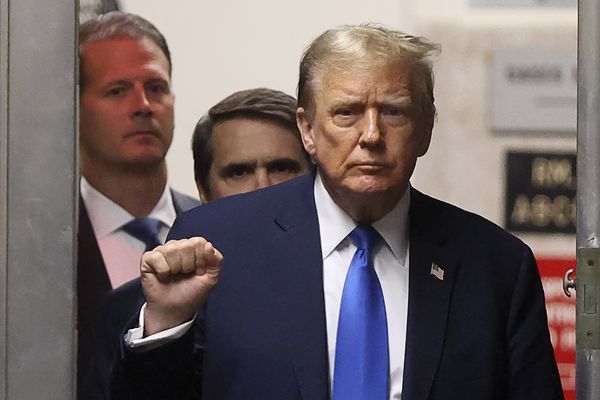
Tuesday’s hearing marked an inflection point for FTX’s bankruptcy case as its new leaders begin chasing down what assets they can salvage and trying to determine who might be responsible for the loss of customers’ money.
“FTX was in the control of inexperienced and unsophisticated individuals, and some or all of them were compromised individuals," said James Bromley, counsel to FTX’s new management, at its first appearance in Delaware bankruptcy court after filing the largest-ever crypto chapter 11 case earlier this month.
Mr. Bankman-Fried didn’t respond to a request for comment.
The new management is only beginning to take stock of how much FTX lost under Mr. Bankman-Fried on risky trading bets, and it has assembled a team of investigators to lead a global hunt for money that left FTX before it failed.
Prosecutors in New York and the U.S. Securities and Exchange Commission are examining the firm’s collapse, which unleashed a new wave of financial stress in the cryptocurrency industry.
Customers’ funds on the exchange are frozen, and they are losing hope they will ever get much back. The size of the gap between FTX’s obligations to its customers and available assets it could use to help pay them still isn’t known, though Mr. Bromley said its individual and institutional customers number in the millions. The 50 largest creditors alone are owed more than $3 billion, court papers show.
FTX, a target of continuing cyberattacks that began when it filed bankruptcy, has also instituted new internal controls to try to protect the company from future hacking, Mr. Bromley said.
He said FTX remains in “constant communication" with the U.S. Justice Department, and the cybercrimes unit of the U.S. attorney’s office in Manhattan has also opened an investigation, Mr. Bromley said in court. The U.S. attorney’s office in Manhattan didn’t immediately respond to a request for comment.
FTX, now controlled by a new chief executive and his appointed directors after Mr. Bankman-Fried stepped down, faces the daunting task of using bankruptcy laws to secure customer funds and other assets. Some FTX assets are outside the U.S., including in the Bahamas, where FTX’s inner circle ran its operation.
The exchange’s managers have hired investigators formerly employed by the SEC and the Justice Department specializing in cybersecurity to track assets belonging to FTX that might have been taken without authorization.
FTX’s lawyers on Tuesday also presented their most searing allegations yet against the platform’s past leaders, especially Mr. Bankman-Fried, and their lack of professionalism in managing billions of dollars in customers’ cryptocurrency assets.
“What we have here is a worldwide, international organization, but which was run as a personal fiefdom of Sam Bankman-Fried," Mr. Bromley said. He described the fall of FTX as “one of the most abrupt and difficult collapses in the history of corporate America and the history of corporate entities around the world. "
The Wall Street Journal has reported that FTX was a chaotic mess of corporate entities and customer assets under the leadership of Mr. Bankman-Fried almost from the firm’s inception.
FTX’s new chief executive, John J. Ray III, said in court papers last week that corporate funds were used to buy homes for employees in the Bahamas without any form of internal documentation. Mr. Bankman-Fried often communicated decisions to his employees through messaging applications that auto-deleted his statements, according to the new CEO.
Mr. Ray, who helped sort through the collapse of Enron Corp. and other large corporate failures, will have an array of legal tools available in chapter 11 to investigate, and potentially claw back, transfers of money or assets made to insiders or other creditors leading up to the firm’s collapse.
That could include customers who recently withdrew funds from the firm, or Mr. Bankman-Fried, who cashed out $300 million when FTX raised outside investment last year, the Journal has reported.
FTX’s failure intensifies the unflattering spotlight on an industry that had already lost credibility with the investing public after a chain reaction of bankruptcies earlier this year revealed that some firms weren’t as careful with customer funds as they had let on.
Customers of crypto exchanges lack the safety nets such as deposit insurance that kick in when regulated banks and brokerages go under. The task of cleaning up after FTX and other recent crypto failures has largely fallen to U.S. bankruptcy courts, which have only recently begun to answer how crypto customers should fare in an insolvency.
Contagion effects from FTX’s collapse continue to ripple out. Crypto lender BlockFi, with which FTX is financially entangled, is exploring a possible bankruptcy filing, the Journal reported earlier this month. Another sizable lender, Genesis Global Trading, is scouring for a rescue after a rush of withdrawals from its lending platform, according to people familiar with the matter. Silvergate Capital Corp., a go-to bank for the crypto market, is being punished in markets over contagion fears. Others firms are touting their reserves and downplaying exposures.
FTX’s managers have said that it will need months to sort through claims from customers and the bad bets at its affiliated trading firm Alameda Research that tipped FTX into bankruptcy. The Journal reported Tuesday that Mr. Bankman-Fried apologized for the firm’s collapse to his former colleagues in a two-page letter that didn’t directly address FTX’s movement of customer funds to Alameda.
Judge John Dorsey of the U.S. Bankruptcy Court in Wilmington, Del., said Tuesday that he would grant a number of requested motions filed by FTX to help the company manage its bankruptcy, including to redact for now the identities of customers with funds frozen on the exchange.
The firm’s management has said it might need until January to compile a complete balance sheet detailing the company’s total assets and liabilities, but some business divisions appear to be solvent. The firm has located about $1.4 billion in cash that it says belongs to the business, more than double the figure given in a report to the court last week. Salvageable units could be sold out of bankruptcy.
FTX has also received requests from both the U.S. House of Representatives and Senate to have Mr. Ray appear before Congress in December, its lawyer said Tuesday.
Some FTX assets are tied up in the Bahamas, where the firm relocated last year as the country sought to become a destination for digital currency firms worldwide. Financial authorities in the Bahamas seized the digital assets of FTX’s local operations earlier this month, which its managers say was done through unauthorized access to its corporate network.
The Securities Commission of the Bahamas, the lead local authority investigating FTX’s collapse, has confirmed the asset transfer, but said the coins were moved to a government-controlled wallet “for safekeeping" and in accordance with local laws.
Court-appointed liquidators in the Bahamas have said the local subsidiary controls private keys needed to transfer crypto in and out of the entire FTX complex, once estimated to hold around $16 billion in assets.
Lawyers representing the liquidators said in court on Tuesday that they didn’t necessarily agree with Mr. Bromley’s characterization that the U.S.-based affiliates in bankruptcy, as opposed to FTX’s Bahamas subsidiary, had control over some customer funds.
“We have some disagreements which we’ll work out over time," said Christopher Shore, U.S. counsel for the Bahamian liquidators.
Simone Morgan-Gomez, a partner at Callenders & Co. based in the Bahamas who isn’t involved in the bankruptcy case, said the Bahamian liquidators will need to establish which creditors have the right to claim funds in any commingled accounts under the company’s name.
Court papers filed in Delaware have indicated a culture of scant record-keeping at FTX and disagreements between its U.S. managers and the Bahamian liquidators over who should control the firm’s assets and distributions to creditors.
“A liquidation of this magnitude is likely going to take a few years," Ms. Morgan-Gomez said.







